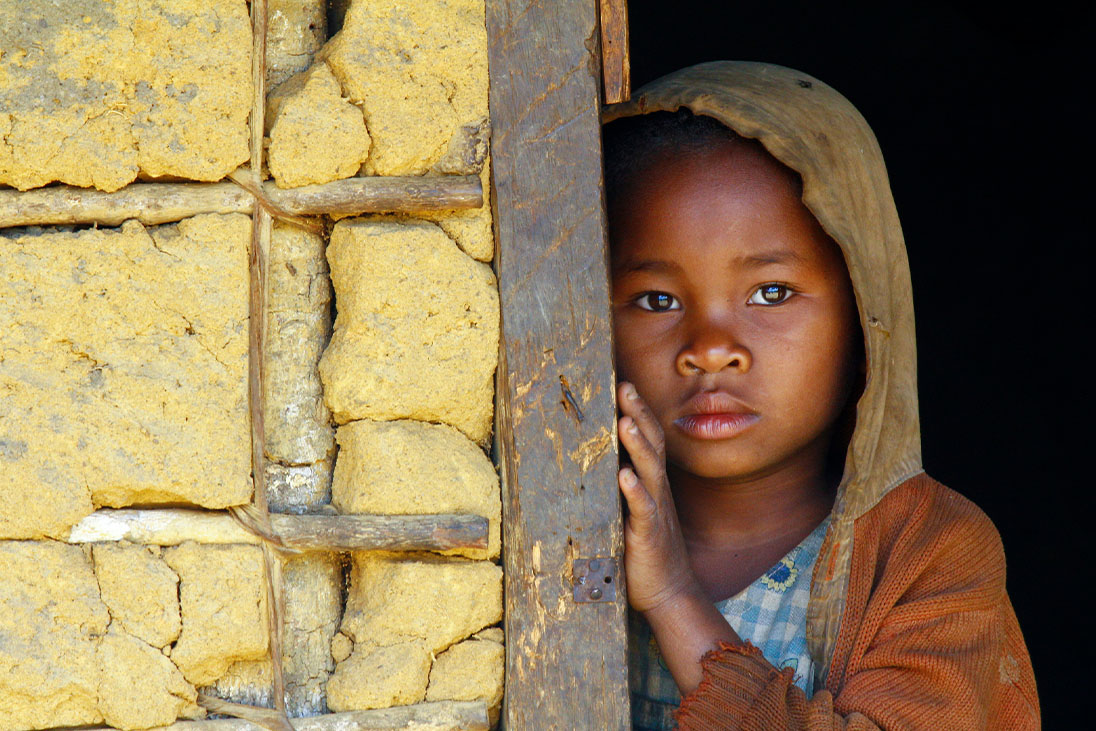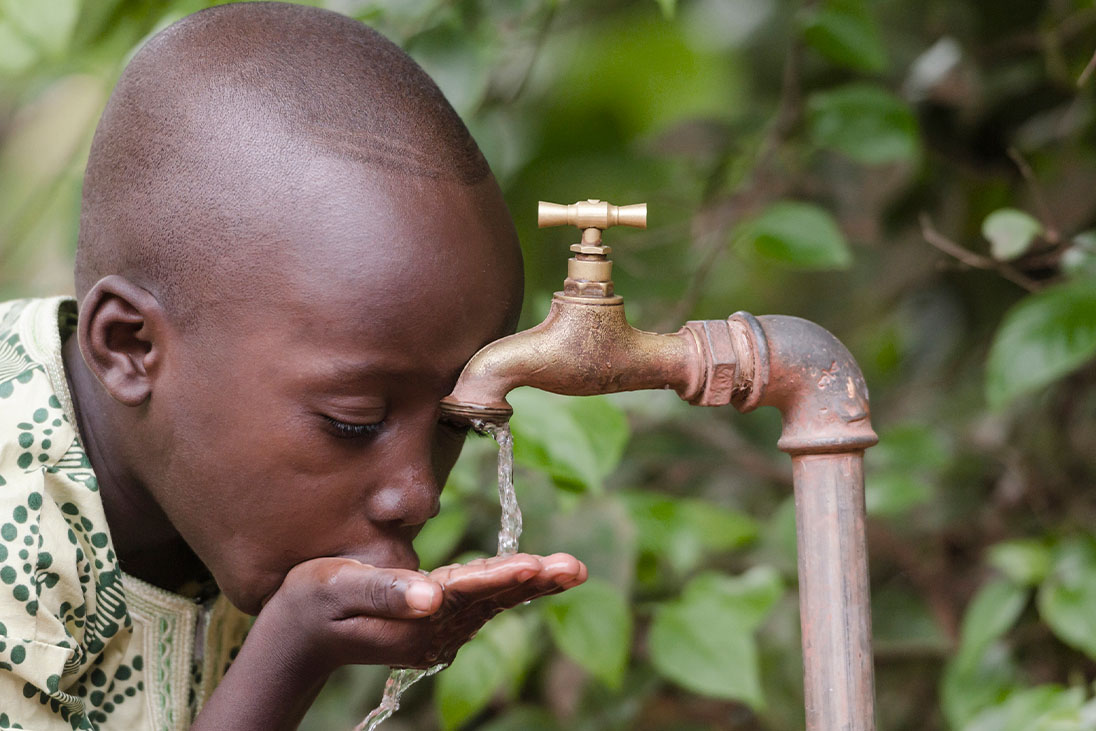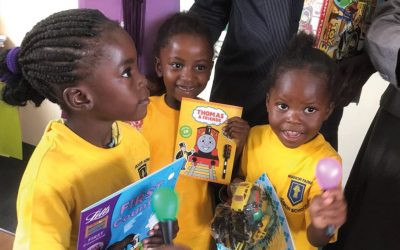Set against the lofty ideals of Rotary, toilets may seem a rather lowly ambition.
Yet, for the past few years, Rotarians across Great Britain & Ireland have been getting rather excited about long-drops and their potential to transform lives.
More than 50 Rotary clubs have become involved with Toilet Twinning, a quirky fund-raising campaign that helps provide proper toilets, clean water and hygiene training in some of the world’s poorest communities. With more than 75 Inner Wheel clubs also twinning toilets, their combined fund-raising total has surpassed £58,000 to date.
Toilet Twinning invites people to ‘twin’ their toilet with a latrine overseas – and so sponsor a household toilet for a family in a poorer community abroad, or a toilet block at a school or refugee camp.
In return, supporters receive a certificate of their toilet twin, complete with photo and GPS coordinates.
FACT FILE: Toilet Twinning
- Toilet Twinning helps provide proper toilets, clean water and hygiene education in remote, poor communities overseas across more than 45 countries. Since 2010, it has twinned about 140,000 toilets.
- It costs £60 to twin a household toilet and £240 to twin with a toilet block at a school or refugee camp.
- The scheme offers a Toilet Twinned Town award for groups who succeed in engaging the whole community in raising awareness and funds. Truro Rotary Evolution recently launched a bid to attain Toilet Twinned City status.
Some clubs have exploited the British love of toilet humour in their fund-raising, often choosing to coincide with the United Nations’ designated World Toilet Day on November 19th.
Rotary Social Innovation South East Hampshire held Bog Off Games: a toilet-themed evening at a community centre in Portsmouth, complete with quizzes, treasure hunt and, of course, toilet golf.
Northwich Vale Royal Rotary in Cheshire invited people to donate loose change in (clean) toilet bowls beside portable toilets at its Charity Scooter Rally.
The light-hearted campaign is, in fact, a response to a serious issue: two billion people worldwide lack a safe, clean toilet.
Without these essentials, families are trapped in a vicious cycle of sickness, poverty and disease.


Two billion people worldwide lack a safe, clean toilet.
Put simply, if you’re constantly falling sick with diarrhoea because open defecation or poorly sited toilets are contaminating the village’s water supply, you can’t work or farm your land properly.
Every two minutes, a child under the age of five dies of a disease related to unclean water and inadequate sanitation.
In Ivory Coast, where Sita lives, only ten per cent of people in rural areas have access to proper sanitation.
Five years ago, Sita and husband, Ankoma, were deep in debt – because there were no toilets in the village. The meagre pay the couple earned by harvesting cashews was spent at the local health clinic on medicines for their children – and their income didn’t stretch far enough.
They often had to buy medicines on credit or borrow from neighbours, and the bills stacked up.
Every two minutes, a child under the age of five dies of a disease related to unclean water and inadequate sanitation.”
Like everyone else in Yalo village, they went to the toilet outdoors.
The children were sick often. Diarrhoea can be fatal in remote rural communities like Yalo: life was precarious.
“We felt trapped,” Sita says. “We didn’t want to live anymore.”
When Toilet Twinning partner MAP started working with the community, they installed a new community water pump and taught the importance of handwashing and hygiene.
They also spent a long time educating villagers about the importance of having toilets at their homes, making sure they understood why not having a toilet was trapping them in poor health and poverty.


When Toilet Twinning partner MAP started working with the community, they installed a new community water pump and taught the importance of handwashing and hygiene.
MAP trained Sita and Ankoma to dig a latrine pit and build an enclosure, and they were proud to install their own latrine. And prouder still when the family’s health started to improve dramatically.
“I returned the money I owed and I felt great,” says Sita. “Now we have money to send our children to school.”
Toilet Twinning CEO Lorraine Kingsley, who recently visited Yalo, found people were keen to show off their toilets.
“Those toilets represent change that families have made happen for themselves and now they’re highly motivated to make other changes too,” says Lorraine.
“Yalo have set up a village committee to maintain the water pump and keep the village clean – and it’s absolutely spotless.”
Toilets are a hugely cost-effective driver of development. According to World Health Organization calculations, every £1 spent on sanitation has a return of £5.50, thanks to increased productivity and lower healthcare costs.
Toilet Twinning CEO Lorraine Kingsley, who recently visited Yalo, found people were keen to show off their toilets.”
Yet, sanitation remains a neglected sector in international efforts to reach the Sustainable Development Goals by 2030. Current projections suggest that only nine per cent of countries in Africa will reach Goal 6 – ‘to ensure access to water and sanitation for all’.
So, the Toilet Twinning campaign, which has raised more than £11 million in its ten-year existence, continues.
It is the tangible practicality of toilets that is a significant part of the scheme’s appeal for many Rotarians.
The relatively new Grantham Sunrise Rotary Club made twinning the toilets at its meeting place, The Eden House Hotel, its first international project. Several members had experienced inadequate sanitation in poorer countries and wanted to do something practical to help.
They held a fund-raising lottery and quiz night – and supported Grantham Inner Wheel at their toilet-themed alternative to a ‘beetle drive’, where people had to build a ‘bog’ instead of a bug.
‘Toilet Twinning is one of the most worthy projects that we have supported to date,’ says former president, Lez Jones.
For more information or fundraising resources, visit: toilettwinning.org contact: info@toilettwinning.org or call 0300 321 3217.


























































